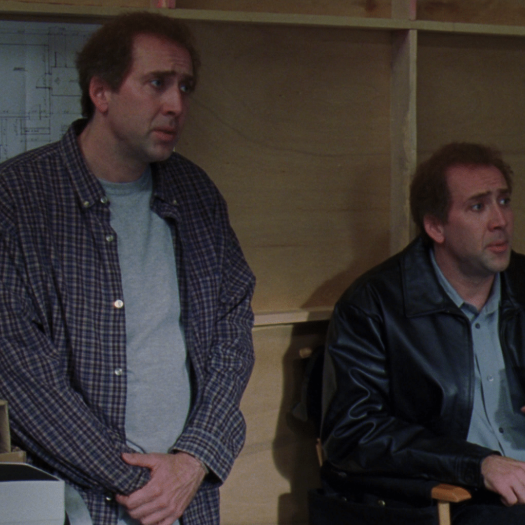NOTORIOUS B.I.G.’S “I GOT A STORY TO TELL” AND CHARLIE KAUFMAN’S “ADAPTATION”
“I Got A Story To Tell” is a piece of art that carefully helps its audience understand the very complex delivery of a story.
The first half of the piece is executed in rap verse and tells of Biggie’s adventure leaving a club with a woman who was romantically involved with an NBA player (a fact that appears to be true). After sex, the two are relaxing when the basketball player arrives at home. In order to escape the situation, Biggie quickly stages a bogus robbery scene by tying the woman’s limbs and mouth (with her consent) and wrapping a scarf around his own face. He then threatens the man with a gun and escapes. This frees himself and the woman from the scrutiny of their infidelity.
At the middle of the song something very unusual happens. The second half of the song repeats the same story, this time as natural field audio, a casual conversation with friends which includes all the details of the same account, starting from the moment they leave the club to the moment he escapes. Rap (like most art) tends to be extremely difficult to understand for people outside of the culture, due to its speed and the complexity of the language. Presenting the song in this way is (whether intentional or not) a generous gift that invites us all and helps everyone understand it.
Adaptation does something similar. Charlie Kaufman transforms the story of “The Orchid Thief” into something entirely different and in many ways, far more complicated. In order to explain many of the substantial and largely abstract deviations from its source material, the film has fictionalized versions of Charlie Kaufman artificially inserted into the book’s narrative. This lets us see the process of making those deviations and partially explains them before they happen.
At a crucial turning point in the story, a writing mentor tells Kaufman the script is bad and the only way to salvage it would be to create a more sensational ending. This sets up a ridiculous, blockbuster 3rd act which is on the one hand intentionally stupid and on the other, a satisfying culmination of the film’s efforts to prepare us for such a conclusion.



